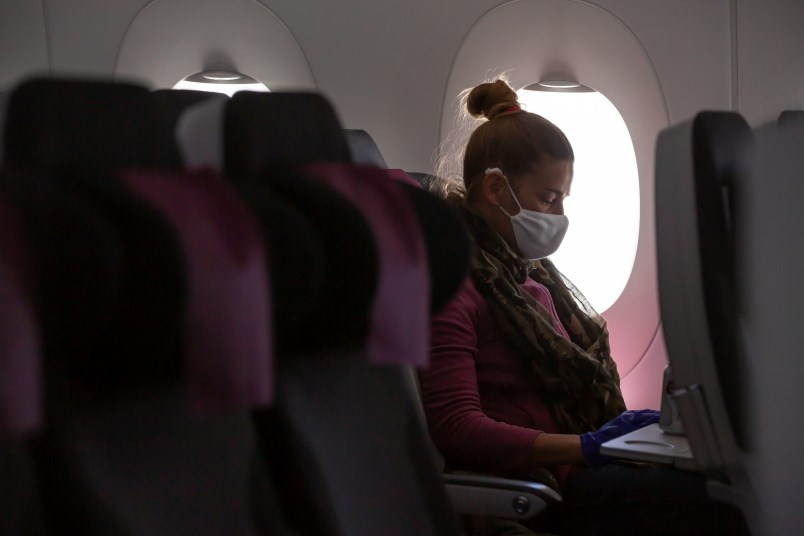The British Columbia Centre for Disease Control (BCCDC) on Friday evening added four more B.C. flights to its COVID-19 public exposures list.
The public health agency on Nov. 6 warned passengers who recently travelled aboard the following flights that they may have been exposed to the virus responsible for creating the ongoing global pandemic.
- Oct. 24, Air Canada 192, Victoria to Toronto (Affected rows 1-4)
- Nov. 1, Air India 186, Vancouver to Delhi (Affected rows not reported)
- Nov. 2, Air Canada 103, Toronto to Vancouver (Affected rows 19-25)
- Nov. 2, Air Canada/Jazz 8069, Vancouver to Victoria (Affected rows 7-13)
Friday's update follows prior announcements about a number of B.C. flights identified for potential exposure this week, including seven recent Vancouver flights.
The BCCDC is encouraging passengers who travelled on a domestic flight flagged for carrying a COVID-19 case to self-monitor for symptoms for 14 days following their potential exposure.
Any passengers who have travelled outside of Canada, meanwhile, are required to self-isolate and self-monitor for symptoms for 14 days upon their arrival. The government continues to discourage Canadians from any non-essential travel outside Canada at this time.
Earlier this week, the Government of Canada also announced that all travellers are required to provide specific information upon and after entry to the country, including a quarantine plan, contact and travel information.
Back in April, the Government of Canada introduced ArriveCAN to create a secure and user-friendly way to help travellers comply with these border measures. ArriveCAN is available as a mobile app or by signing in online.
Any returning travellers who develop symptoms following their arrival in Canada should get tested for COVID-19. Individuals who test positive are required to self-isolate for a minimum of 14 days from their arrival date, or 10 days after onset of symptoms, whichever is longer.
While self-monitoring for symptoms of COVID-19— i.e. fever, cough, chills, sore throat, loss of sense of smell or taste and many more—individuals should take and record their temperature daily, and avoid taking fever-reducing medications like acetaminophen or ibuprofen if possible, for 14 days following their return to Canada or last known exposure to a confirmed COVID-19 case. The average normal body temperature taken orally is about 37°C, according to the BCCDC.
For more information about self-monitoring and self-isolation, head to the BCCDC's website.
- With files from Elana Shepert



